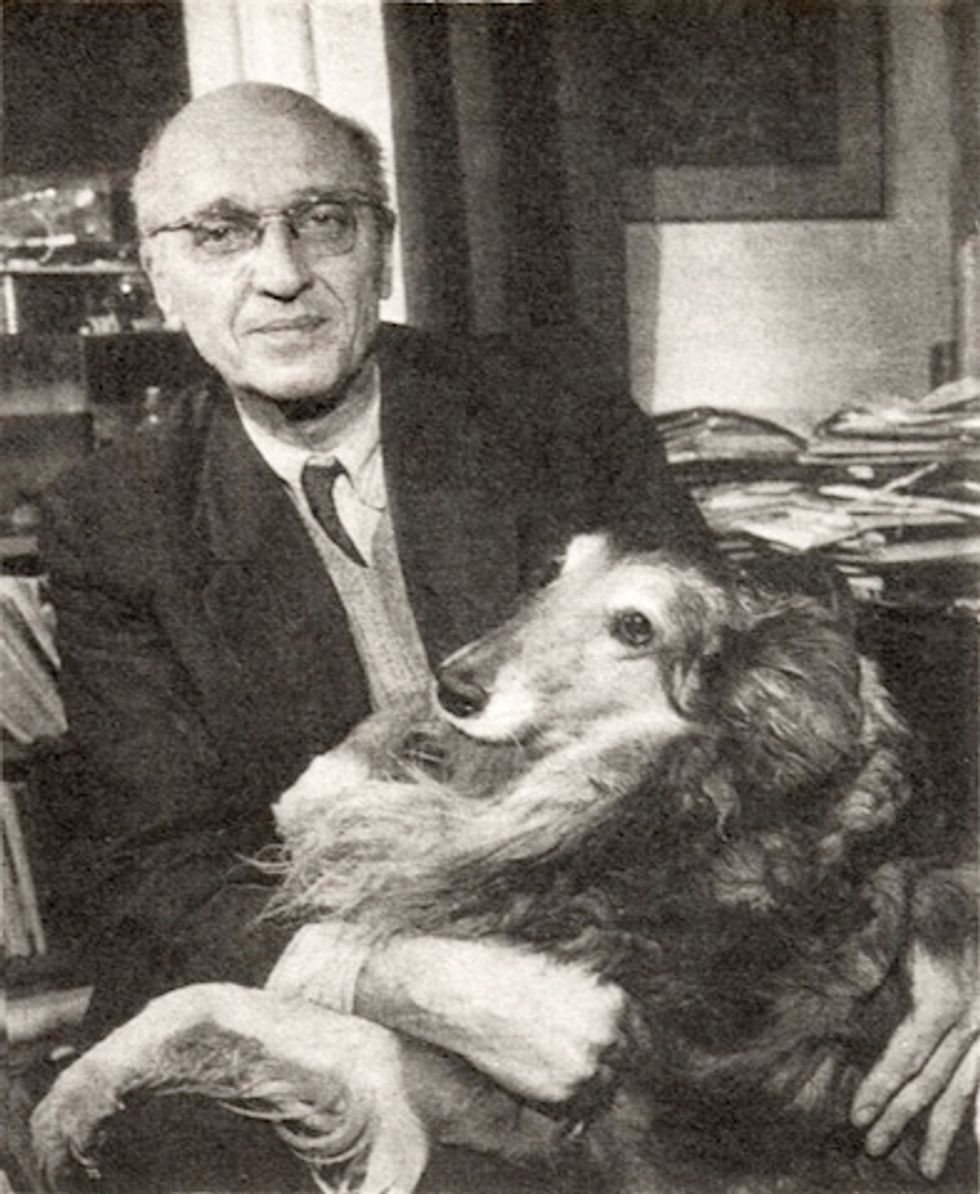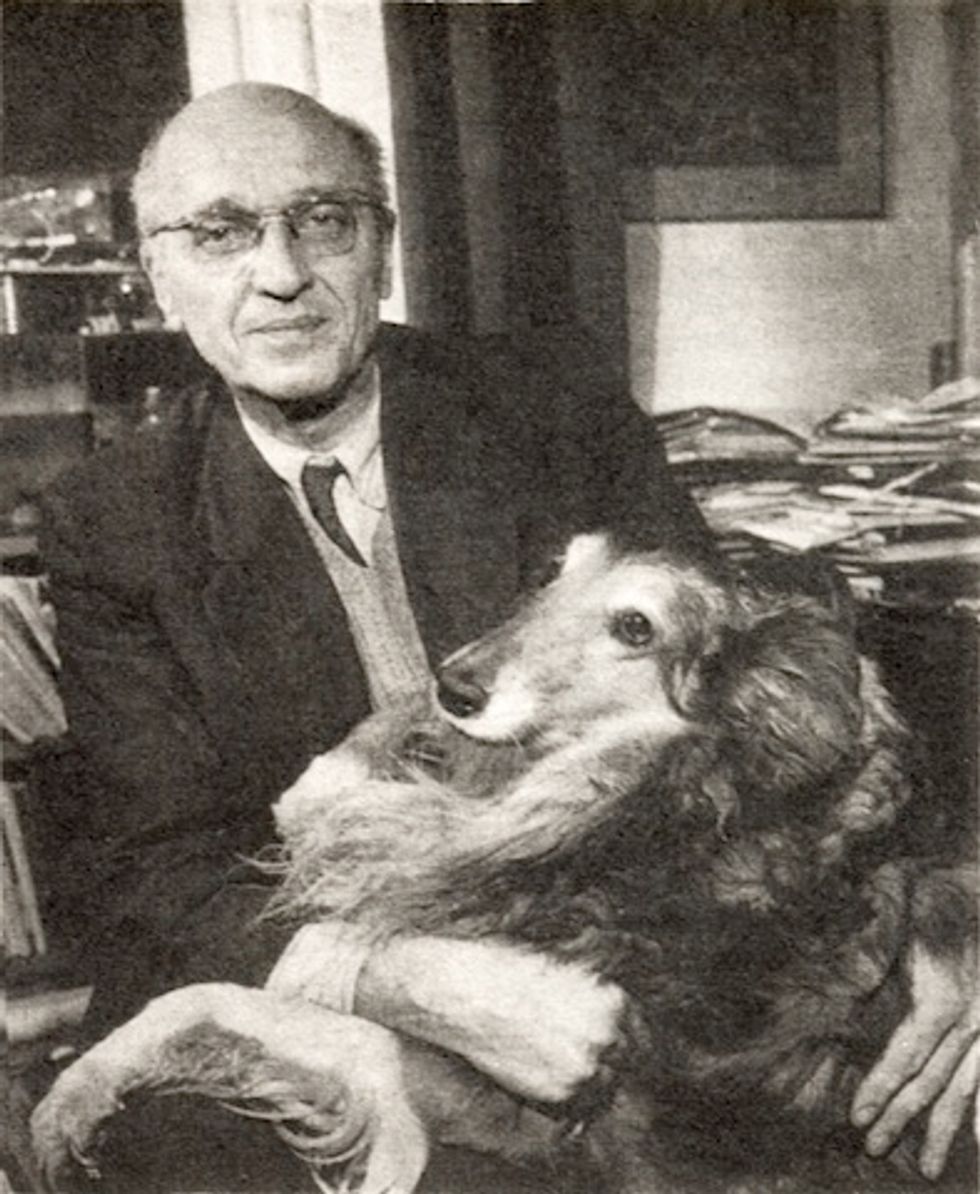
Dr. Jan Zabinski, the former director of the Warsaw zoo, and his family are credited with saving some 300 Jews during the Holocaust. (Image source: Wikipedia)

As the world marks International Holocaust Remembrance Day and the 70th anniversary of the liberation of Auschwitz, one Polish family is being remembered for their efforts to save hundreds of Jews from almost certain death at the hands of the Nazis.
Dr. Jan Zabinski was the director of the Warsaw Zoo during World War II. One of the largest zoos in Europe at the time, it was hit during the German bombings of Warsaw, killing many of the animals.
With rows of empty animal cages, Zabinski came up with a creative use for them: secretly invite Jews to live in the zoo, sparing them from the infamous Warsaw ghetto and ultimate deportation to death camps.

According to Holocaust survivor testimony given to Israel’s Yad Vashem Holocaust memorial, Zabinski, his wife Antonina, and their son launched a family effort to save as many Jews as possible, a project one survivor described as a “Noah’s ark.”
Because Jan Zabinski worked for the Warsaw municipality, he was permitted inside the Warsaw ghetto. There, he would meet Jews and offer them shelter in the animal pens, helping them cross outside the ghetto by arranging new documentation for them. He hid another dozen to live inside his own home.
Survivor Irena Meizel recalled: “Dr. Zabinski, with exceptional modesty and without any self-interest, occupied himself with the fates of his prewar Jewish suppliers ... different acquaintances as well as strangers.”
The effort was extremely dangerous, as harboring Jews led to stiff punishments under the Nazis. While Jan Zabinski went to the ghetto to find Jews to save, his wife and son, Ryszard, worked to find food and supplies for their guests.
The family took precautions to avoid being discovered: Their guests were assigned the names of animals as code names. Antonina Zabinski would play one particular song loudly on piano to alert the Jews to hide any time there was an unexpected visitor.
Zabinski actually joined the Polish underground to fight the Nazis in Warsaw; after he was taken prisoner in 1944, his wife and son continued the efforts to care for the hidden Jews.
Today, there is an effort underway to honor the family's heroic actions by renovating the villa where they lived, which serves as a small museum dedicated to their bravery.
From the Depths, an organization dedicated to honoring the 6 million Jews killed during the Holocaust and the non-Jews who risked their own lives to save their Jewish neighbors, partnered with the zoo to renovate the Zabinski villa.
"It is crucial that whilst millions come every year to visit the concentration camps, they too should visit sites of heroism, sites that encourage our faith in humanity,” said Jonny Daniels, founder and executive director of From the Depths. “Especially with the terrific rise in anti-Semitism we are seeing all over Europe, we must too understand that good people can stand up and make a difference.”
According to From the Depths, Zabinski offered temporary shelter to some 300 Jews over the course of three years until they were able to find more permanent refuge elsewhere. The state of Israel later awarded him and his wife the distinction of “Righteous Among the Nations,” non-Jews who took great personal risk to save the lives of Jews.
From the Depths also found that some of the stones that were later used to fortify walls at the zoo were actually tombstones stolen from Jewish cemeteries after the war. It has launched a project throughout Poland to find other tombstones engraved with Hebrew letters used in walking paths, construction equipment and playgrounds. With local volunteers, From the Depths brings the tombstones back to Jewish cemeteries.